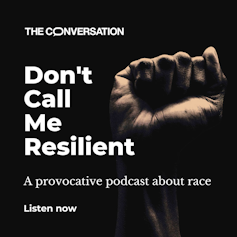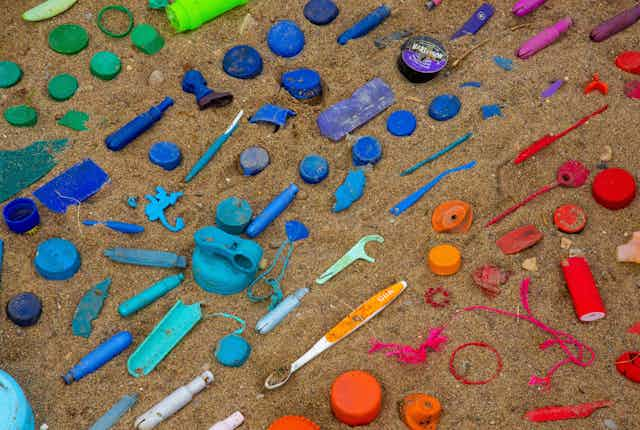Why pollution is as much about colonialism as chemicals.

Plastics and industrial chemicals are types of pollution that stay around almost forever. If we’re talking about resilience — both persevere. Plastics and chemicals wind up in oceans, in the guts of birds and fish, in food systems and eventually, they settle into our bodies. Some chemicals are part of our very human makeup now, part of our bloodstream.
In this episode of Don’t Call Me Resilient, two Indigenous scientists running collaborative labs address our climate crisis to offer a path forward.
Learning to accept, live with and even love the parts of us infused with industrial toxins is part of it. Another key component comes in the redefinition of pollution and chemicals to include colonialism at its root: to understand that our rain is laced with toxic chemicals, as well as racism.
Max Liboiron joins us from St. John’s, N.L., homelands of the Beothuk. They are associate professor in geography at Memorial University of Newfoundland and the author of Pollution is Colonialism. Their work focuses on plastic pollution and marine food webs.
Joining Max in conversation is their colleague and friend, Michelle Murphy. Murphy leads an Indigenous-led environmental justice lab at the University of Toronto. They are a professor of history and women and gender studies and a Canada Research Chair in science and technology studies and environmental data justice.
For a full transcript of this episode of Don’t Call Me Resilient, go here.

Additional reading
Each week, we highlight articles or books that drill down into the topics we discuss in the episode. For this episode, The Conversation‘s Environment and Energy Editor Hannah Hoag recommends some important articles from her desk, and I include some additional resources:
Pollution is Colonialism by Max Liboiron
Against Population, Towards Alterlife by Michelle Murphy
“Decolonization is Not a Metaphor” by Eve Tuck and K. Wayne Yang
“Suspending damage: A letter to communities” by Eve Tuck
Not all marine fish eat plastics by Max Liboiron
Microplastic pollution is everywhere, but scientists are still learning how it harms wildlife

“Being a scientist means taking sides” by Mary H. O'Brien
It’s taken thousands of years, but Western science is finally catching up to Traditional Knowledge
Recycling isn’t enough — the world’s plastic pollution crisis is only getting worse
Plastic in the oceans is not the fault of the Global South
As ships move north with climate change, their noise scares Arctic cod away
Follow and listen
You can listen or subscribe on Apple Podcasts, Google Podcasts, Spotify or wherever you listen to your favourite podcasts. We’d love to hear from you, including any ideas for future episodes. Join The Conversation on Twitter, Facebook and Instagram and use #DontCallMeResilient.
Don’t Call Me Resilient is a production of The Conversation Canada. This podcast was produced with a grant for Journalism Innovation from the Social Sciences and Humanities Research Council of Canada. The series is produced and hosted by Vinita Srivastava. Our producer is Susana Ferreira. Our associate producer is Ibrahim Daair. Reza Dahya is our sound producer. Our consulting producer is Jennifer Moroz. Lisa Varano is our audience development editor and Scott White is the CEO of The Conversation Canada. Zaki Ibrahim wrote and performed the music we use on the pod. The track is called Something in the Water.

